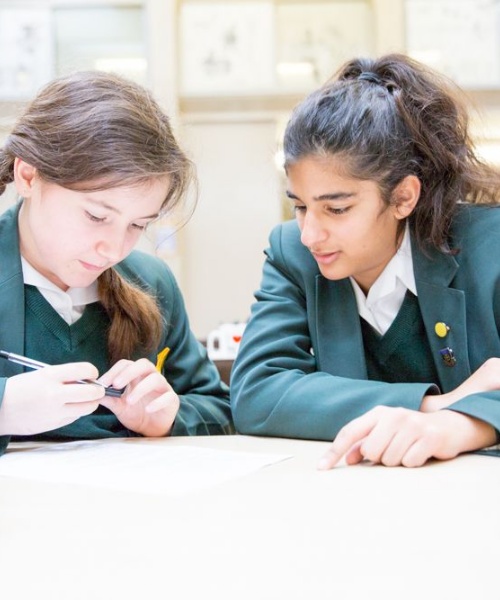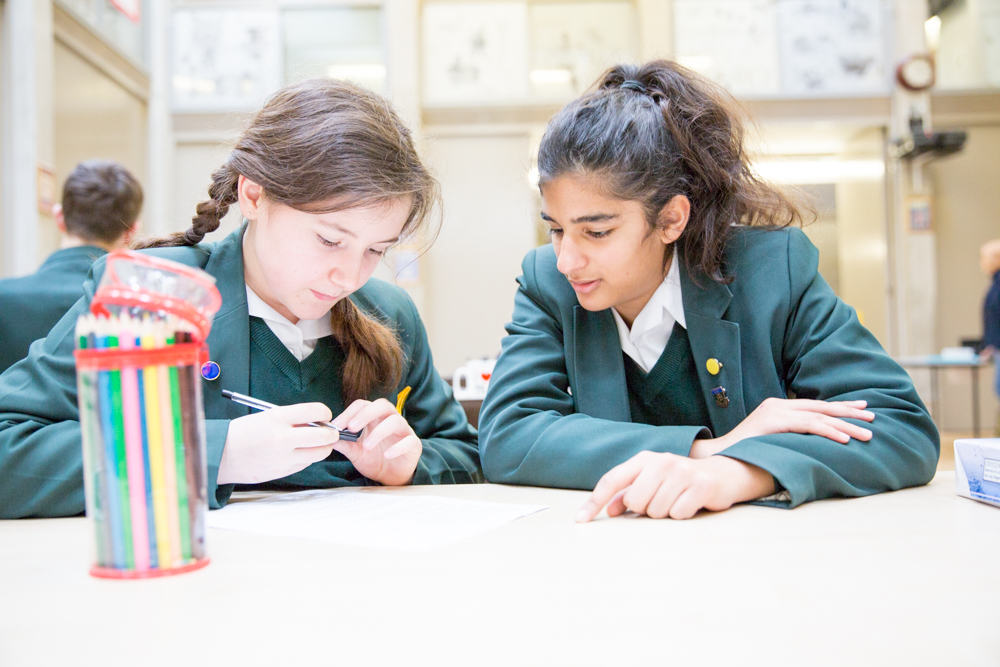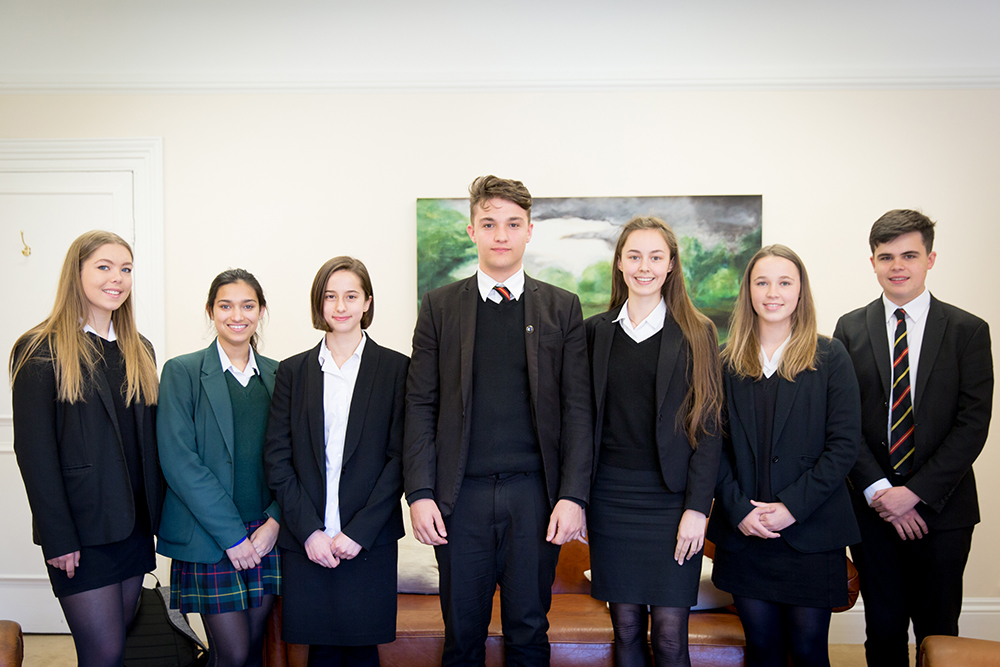The value of Mentoring

Peer mentoring at St Benedict’s has gone from strength to strength in recent years, helping to support pupils' wellbeing and mental health.

Peer mentoring is thriving at St Benedict's. We now have over 40 sixth formers assisting pupils across the school, and many more willing volunteers ready to help as required. Secondary school is full of challenges, such as the transition from primary to secondary, preparing for assessment, friendships, or simply trying to work out how to manage your time. Our sixth formers are perfectly placed to be able to provide the younger members of our school community with the necessary support to help them thrive in all areas of school life. The mentors show the dedication, respect and compassion that we have come to expect from pupils at St Benedict’s, and I feel privileged to work with them.
Ms Sorohan (Deputy Director of Sixth Form, Head of Classics and Mentoring Co-ordinator)
I wanted to be a mentor because I want to help others to become comfortable and happy. I had a mentor when I was in Year 8 and I found it very helpful, so I wanted to do the same."
Ella (Year 13): Being a mentor involves supporting pupils who are struggling at school, having difficulties with friendships, with their academic work or with organisational skills, for example.
I originally wanted to become a mentor to help younger pupils, and knew that I would gain a personal sense of satisfaction from knowing that I've helped someone. As well as giving mentees advice, mentoring gives younger students an opportunity to talk to fellow pupils about difficult issues, which may be easier than talking to an adult or teacher. Mentoring has improved my communication and personal skills as well as developing leadership and management qualities.
Being a mentor involves supporting pupils who are struggling at school, having difficulties with friendships, with their academic work or with organisational skills, for example."
Oscar (Year 13): Why do I want to take part in mentoring? It gives me and others the chance to help younger pupils with their school life. Lots of pupils come into secondary school and become confused as it's such a step up from primary school. They need guidance when they first start with things such as lockers, books and finding their way round the school. Helping these pupils allows me to fulfil my duty of mentoring. This has helped me to develop my social skills and ability to communicate with the younger year groups. It also gives me a sense of pride as I am helping others. The mentees benefit greatly from this as they gradually start to adapt to their new school life.
Mentoring gives younger students an opportunity to talk to fellow pupils about difficult issues, which may be easier than talking to an adult or teacher.”
Isabella (Year 13): When I was asked to mentor someone in the year below me I took the chance straight away. Being able to help someone flourish, both academically and in other areas of school life, is very rewarding.

Valentina (Year 13): Every pupil learns in a different way and responds in varying degrees to certain revision methods. What I wanted to do was to synthesise the many techniques I’d learnt over the years from my fabulous teachers and pass this on to my mentee. I think talking to an older pupil and pinpointing areas to improve in is a very effective way to learn and excel.
Our sixth formers are perfectly placed to be able to provide the younger members of our school community with the necessary support to help them thrive in all areas of school life.”
Kira (Year 12): I wanted to be a mentor because I want to help others to become comfortable and happy. I had a mentor when I was in Year 8 and I found it very helpful, so I wanted to do the same.
Evan (Year 13): I understood the importance of having guidance throughout my GCSEs and wanted to do the same for someone else.